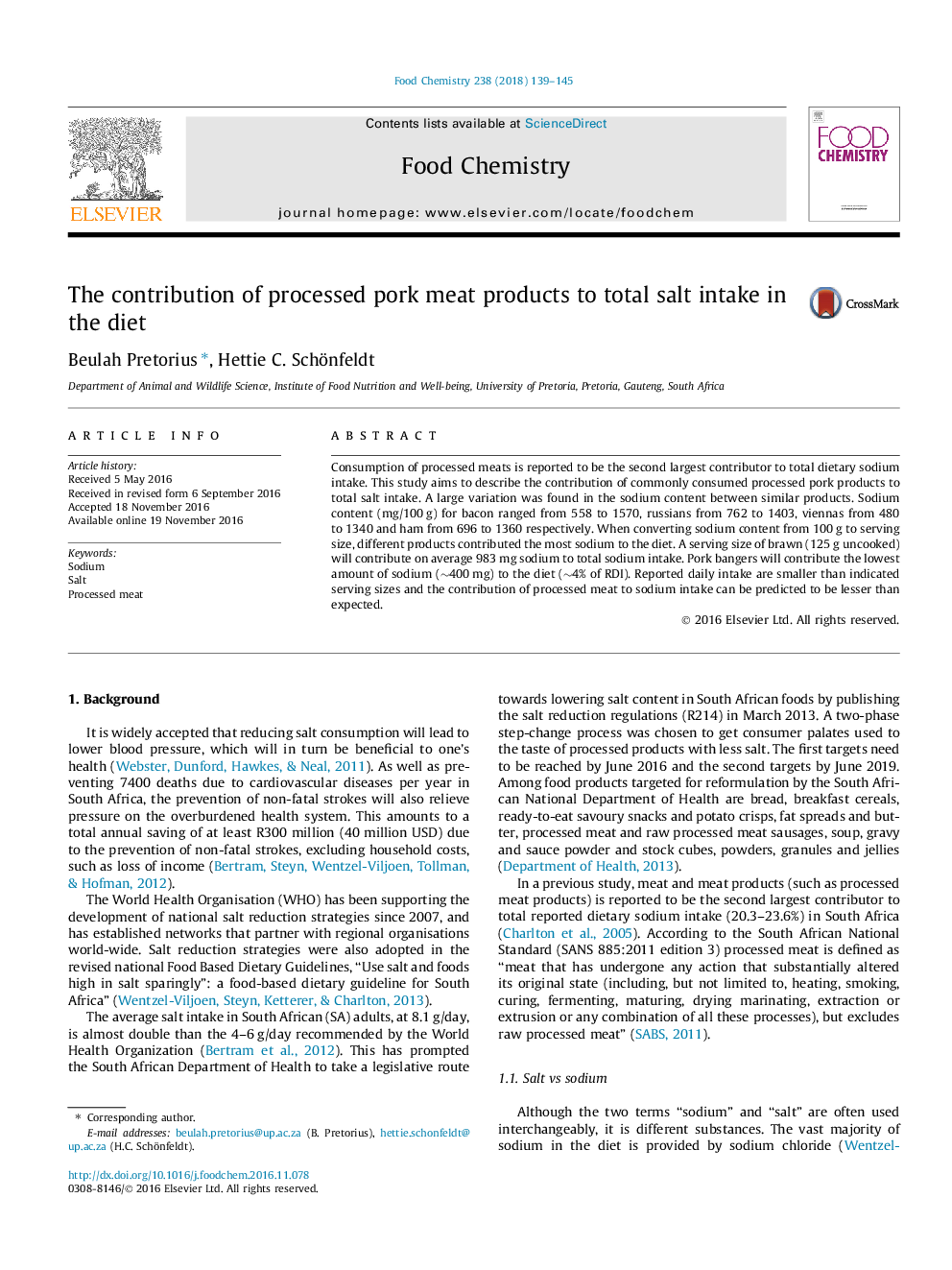| کد مقاله | کد نشریه | سال انتشار | مقاله انگلیسی | نسخه تمام متن |
|---|---|---|---|---|
| 5132677 | 1492054 | 2018 | 7 صفحه PDF | دانلود رایگان |
- Reported portion sizes are smaller than indicated serving sizes.
- The reported intake of processed meat products per day is low.
- Processed pork meat products contribute to <2% of the total dietary sodium intake.
- Recent food intake data (frequency and amount) on processed meat products is necessary.
Consumption of processed meats is reported to be the second largest contributor to total dietary sodium intake. This study aims to describe the contribution of commonly consumed processed pork products to total salt intake. A large variation was found in the sodium content between similar products. Sodium content (mg/100Â g) for bacon ranged from 558 to 1570, russians from 762 to 1403, viennas from 480 to 1340 and ham from 696 to 1360 respectively. When converting sodium content from 100Â g to serving size, different products contributed the most sodium to the diet. A serving size of brawn (125Â g uncooked) will contribute on average 983Â mg sodium to total sodium intake. Pork bangers will contribute the lowest amount of sodium (â¼400Â mg) to the diet (â¼4% of RDI). Reported daily intake are smaller than indicated serving sizes and the contribution of processed meat to sodium intake can be predicted to be lesser than expected.
Journal: Food Chemistry - Volume 238, 1 January 2018, Pages 139-145
